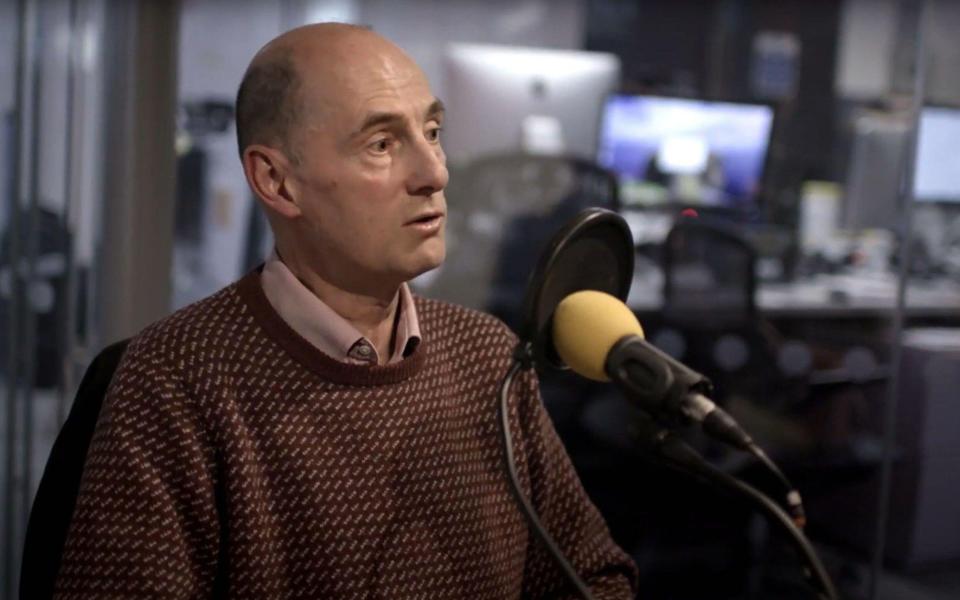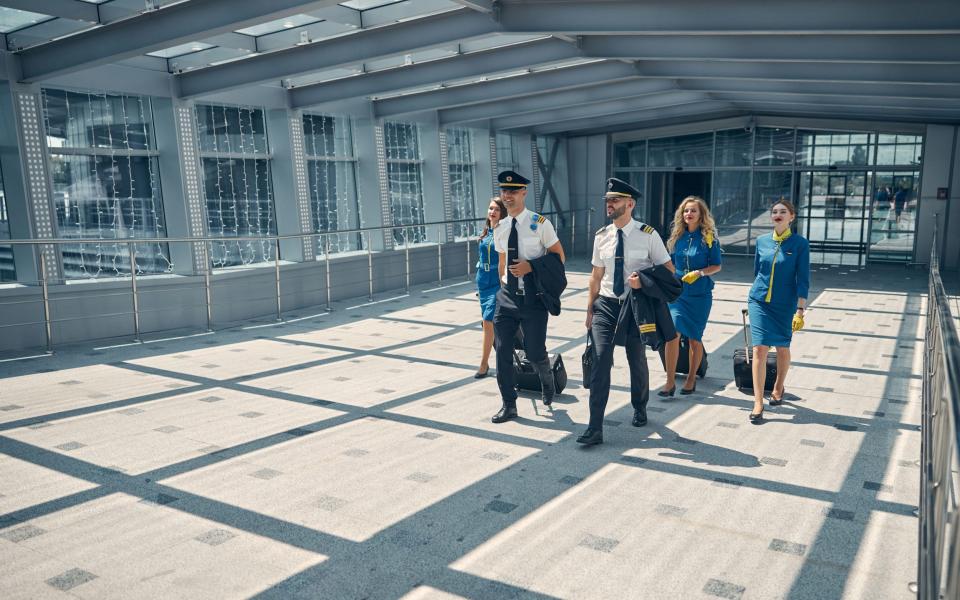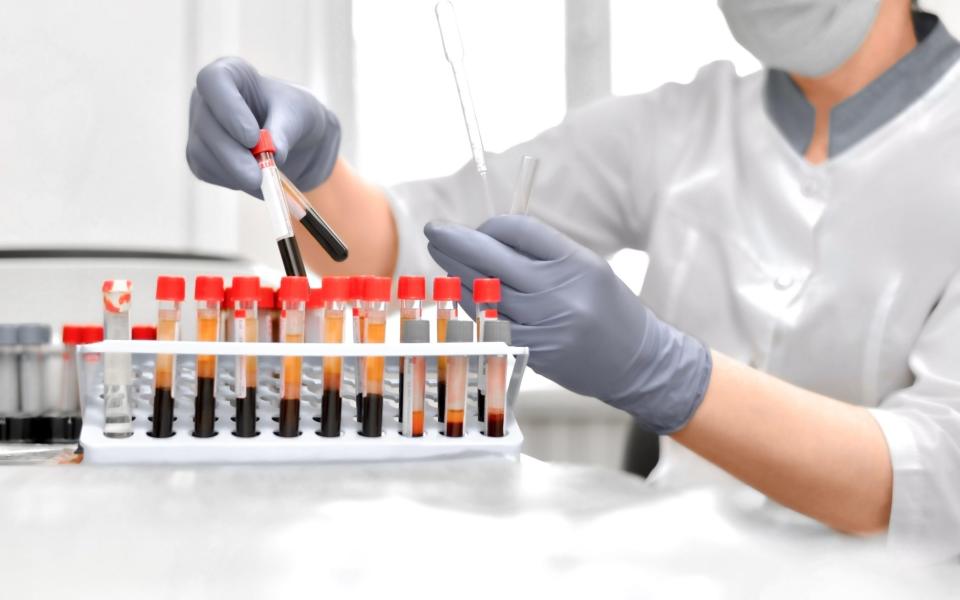Could toxic chemicals on planes be making cabin crew ill?

Back in the early 2000s, Tristan Loraine was a fitness-loving airline captain with a penchant for marathons. But when his health took a nose-dive, he started to ask questions about his much-loved career.
“I went from doing the Ironman Triathlon to being unable to run a mile within about six months,” he says. “And as I started to get sick, I went to see various independent medical experts and scientists and said, ‘Do you know what’s happening to me?’ And a dozen of them wrote letters to the Civil Aviation Authority and said, This person is definitely being adversely affected from exposure to fumes in the workplace.’”
“Based on that evidence, the Civil Aviation Authority withdrew my medical certificate to fly. They didn’t ask me to see anybody else for another opinion. They accepted 100 per cent the opinion given to them. They took my medical certificate and because I didn’t have a medical certificate to do the job as an airline captain, British Airways was forced to terminate my contract and give me an ill health pension”.

Loraine, who has since become a campaigner and spokesperson for the Global Cabin Air Quality Executive, is one of a growing number of pilots and cabin crew who want acknowledgement that long-term health can be affected by exposure to contaminated air on commercial flights.
Awareness of what’s sometimes called “aerotoxic syndrome” has increased significantly over the past few years, but proving a link between illness and cabin air is hard.
“There are limitations of past studies: studies describing symptoms, exposure and toxicity data of air crew have not been obtained in a prospective-cohort design,” says the neurologist Dr Gerard Hageman, who has co-authored several papers on the subject.
“The aviation industry recognises that some air crew experience acute symptoms following a fume event. Debate continues as to whether exposure to contaminated air can cause long-term health effects,” he adds.
Toxic fumes
With the exception of the Boeing 787 Dreamliner, commercial jets use bleed air from the engine to ventilate their cabins. But if there’s a malfunction, such as engine oil seal failure, contaminants including tricresyl phosphate (TCP) can leak into the body of the plane.
If levels are high enough, this results in a “fume event”, sometimes indicated by smoke, fumes or a strange smell (often described as a bit like sweaty socks) entering the cabin. At other times though, there may be no signs at all that crew or passengers could have been exposed to toxic chemicals.
In extreme cases, the disorientation caused by these events can wreak havoc. In October 2023, emergency services were called to Heathrow Terminal 5 following a fume event on a British Airways A320 returning from Barcelona.
According to reports, members of the flight crew fell ill after smoke was detected in the cockpit, with passengers held for hours on the runway. And in the same month, Simple Flying reported that another BA plane destined for Malta was forced to return to Gatwick after the captain announced to passengers that a fume event had occurred.
A May 2023 article authored by 16 academics and experts including Loraine and Hageman noted a stark difference in reactions to these events in crew and passengers, stating that “while few passengers appear to suffer more than symptoms of irritation following a ‘fume event’, air crew frequently become systemically unwell and need medical attention”. Campaigners believe this may be due to more regular exposure to the contaminants in cabin air.
Long-term effects
Official bodies including the Civil Aviation Authority (CAA) acknowledge that fume events can lead to short-term health issues such as headaches, nausea, fatigue and mild confusion, but longer-term effects are more controversial and the existence of aerotoxic syndrome remains contentious. A spokesperson for the CAA told The Telegraph that “long-term ill health due to any toxic effect from cabin air is understood to be very unlikely”.
Meanwhile, IATA’s (International Air Transport Association) Cabin Air Quality FAQs state that “some crew who have been involved in CAQEs do subsequently experience ongoing ill health and may link their symptoms to the exposure, however the research to date has not established any causative link.”.

The issue of diagnosis is further complicated by a number of other occupational hazards that could also cause ill health, among them stress, prolonged exposure to cosmic radiation and the interruption of normal circadian rhythms caused by jet lag and shift work. Despite this, a number of private European clinics offer treatment for the syndrome, while some sick crew members have launched legal cases seeking compensation.
In 2020, ex-captain Andrew Myers appealed a decision by JetBlue’s insurers to stop his benefits, after ill health rendered him unfit to fly following exposure to TCP during a fume event. The insurers denied that his symptoms, including toxic encephalopathy (brain dysfunction), were a result of aircraft fumes – but the State of Oregon Workers’ Compensation Board overruled the decision.
At the time, the judge reportedly remarked on the complexity of the case, saying in his summing up that, “the scientific explanations regarding airplane toxic fume exposures were highly technical and frequently not in agreement. The expert medical opinions were lengthy and, at times, diametrically opposed”.
A safer future?
On both sides of the debate, there’s an acknowledgement that more research is needed. Live fume events are, by their nature, hard to monitor. In addition, “the literature has been focused on TCP as the major toxic compound, however a mixture of other organophosphates such as TBP (tributyl phosphate), solvents (toluene, xylene), carbon monoxide and ultrafine particles is likely responsible,” says Hageman.
Investigations are ongoing. The EASA (Euriopean Authority for Aviation Safery) is currently conducting its third study into issues arising from contamination events caused by oil leakage, while the UK Government’s Committee on Toxicology has been reviewing new data on the issue. Its findings are due imminently.

Nevertheless, there’s a frustration among campaigners that airlines and manufacturers are yet to take what they regard as meaningful action. A 2020 Los Angeles Times investigation claimed to have uncovered internal emails and sworn depositions from senior Boeing engineers which suggested they were reluctant to develop air sensor technology because it might provide data that could be used in lawsuits by sick crew members and passengers.
A Cabin Safety Act was reintroduced to the US House of Representatives in 2023 calling for fume event training and protocols for crew and compulsory onboard air quality monitoring equipment and detectors. However, in the UK, a CAA spokesperson told The Telegraph that “sensor technology to detect fume events remains at a proof-of-concept stage.
There are many sources of ‘contaminants’ in a cabin which can be detected by sensor devices, including those from catering or passengers. Until the technology has been proved to work in an aviation context, we would not advise their use at this time”.
Meanwhile, a new blood test to detect exposure to organophosphates was announced at this year’s Aircraft Cabin Air Conference but, as yet, there are no plans for it to be adopted by any company or professional body.
“The blood test is still experimental but should be available this time next year,” says Loraine. “Unite part-funded the blood test work but has not requested to have its crews tested. It makes no sense to me.”
Repeated requests for comment from Unite and Boeing for this article went answered. It’s this silence that frustrates campaigners and some airline staff – a lack of engagement that sometimes stretches down the chain to senior staff onboard the aircraft.
As cabin crew member and the author of the book Cruising Altitude Heather Poole remarks, “Pilots I’ve dealt with don’t want to take it any further and actually deny it happens, even when cabin crew end up in the hospital. It makes me wonder why. Are they penalised somehow? Or is it because they’re far removed from the situation and therefore can’t back us up?”


